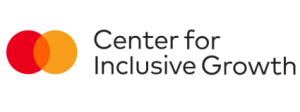America Needs Small Businesses. Here’s How We Can Help Them Succeed
Small businesses are essential to our economic well-being, but they face common challenges. Learn how the Mastercard Center for Inclusive Growth is building a support ecosystem to help them and fuel an inclusive economic recovery. This article is EMERGE sponsored content presented by Mastercard Center for Inclusive Growth.
By Financial Health Network
-
Program:
-
Category:

*This article was sponsored by Mastercard Center for Inclusive Growth. All views and endorsements expressed in this article are solely those of the author and do not necessarily reflect the views or endorsements of the Financial Health Network.

It’s a truism that small businesses are the backbone of the American economy. They serve as a canvas for innovation and dynamism, generate jobs that support families and livelihoods, and create products and services that build unique and vibrant communities.
In 2021, as we continued to collectively assess the damage the pandemic inflicted on the country and the economy, Americans applied to start 5.4 million new businesses – a figure that, according to the White House, is more than 20% higher than any year on record. A recent study from the Kauffman Foundation also suggests an encouraging trend toward entrepreneurship since the pandemic, including diverse small businesses.
This momentum doesn’t mean it’s easier to be in the business of small business these days. Many are still reeling from the pandemic and continue to face headwinds from inflation, staffing shortages, and supply chain issues. In fact, nearly 60% of firms that participated in the 2022 Small Business Credit Survey said they were in “fair or poor financial condition, a figure little-changed since the 2020 survey.” Those most likely to report these challenges were smaller companies, Asian-owned, Black-owned and Hispanic-owned businesses and those specializing in leisure or hospitality.
To fully realize the potential of small businesses to fuel an inclusive economic recovery, we must ensure they have a robust support system to navigate a changing and increasingly digital economy.
At the Mastercard Center for Inclusive Growth, we’ve been exploring how best to empower small businesses to grow and succeed in the modern marketplace. Through our work, we have identified three roadblocks American small businesses commonly confront: getting capital, going digital, and growing networks and know-how. To directly address these challenges, we have invested in building a national small business support ecosystem that can help resolve them.
We are excited to introduce Strive USA, an innovative program that aims to support small businesses and the people who lead them in our communities and our economy. Here’s how it works.
Challenge: Getting Capital
Key Players: Community Financial Institutions
Small businesses are often stymied by an inability to access credit and loans. Many owners are seeking loans under $100,000, which traditional banks typically do not offer. They also may not possess the personal wealth, business assets, or history of performance sufficient for attracting a mainstream lender’s interest. This market gap especially shuts out diverse small businesses, whose businesses tend to be smaller and operate with fewer cash reserves.
This is where community financial institutions (CFIs) come in. These organizations specialize in providing funding that some small businesses can’t always secure through traditional means. However, these institutions often face operational hurdles in scaling their financial services.
At the Mastercard Center for Inclusive Growth, we have supported innovative organizations like Community Reinvestment Fund, USA (CRF) and CNote to build technology platforms that enable CFIs to move capital to small businesses faster and with greater reach. For example, CRF’s online marketplace Connect2Capital quickly matches small businesses with community lenders that can provide responsible loans, providing an alternative to high-interest loans from some online lenders. Another digital platform, SPARK, has streamlined and sped up CFI loan origination. During the height of the pandemic in 2020, the platform enabled dozens of small, less-resourced community lenders to originate more than $6 billion in loans from the Small Business Administration’s Paycheck Protection Program.
Another partner, CNote, is on a mission to increase the flow of capital to underserved small businesses by using fintech to make CFI investing easier and more accessible to a broad pool of impact investors. CNote’s investment platform has deployed more than $300 million in capital, with 73% flowing to communities of color.
Challenge: Going Digital
Key Players: Tech Companies and Fintechs
Digitizing processes like invoicing, bookkeeping, and inventory management can help small businesses gain better insight to optimize operations and manage cash flows. This is especially important for Black-owned and Hispanic-owned businesses, which often have fewer cash reserves than White-owned businesses and are more vulnerable to economic shocks, according to a study by JPMorgan Chase.
In a world gone digital, enterprises of all shapes and sizes will need to adopt new technology to thrive and remain competitive. While the pandemic necessitated and accelerated the adoption of touchless, cloud-based, and digital options across the economy, many small businesses are struggling to navigate a dizzying array of e-commerce platforms, fintech, and other digital tools.
By convening tech-oriented partners, we aim to develop, test, and deploy solutions that enable small businesses to integrate the right digital tools and services so they can be more productive and financially resilient.
Challenge: Growing Networks and Know-How
Key Players: Local Business Support Organizations
Funding and digital tools are crucial, but they can get a small business only so far. Entrepreneurs also need to keep their skills, know-how, and insights sharp to grow and compete in the marketplace. By connecting with expert organizations – primarily at a local level – business leaders can receive tailored advice and connect with peer mentors who can help guide their enterprise through present and future challenges.
Through Strive USA, we will partner with local organizations in a number of cities to connect entrepreneurs with the local expertise and resources they need to run a successful business in their community.
Investing in Small Business Success
Because small businesses are so essential to our economic well-being, the barriers that stand in their way stand in the way of inclusive growth. As individuals, many of us have heeded the call to support small business through the difficulties of the past few years, including by eating at local restaurants and shopping more frequently at the corner store. Now, as a community of financial inclusion leaders, we have an opportunity to do more.
Through Strive USA, we are committed to providing support to 5 million American small businesses over the next five years, with a particular focus on women-owned, Black-owned and Hispanic-owned businesses. When small businesses succeed, we all succeed – and we invite you to join us in the necessary and empowering work of lifting them up.
Sign up to learn more about Mastercard Center for Inclusive Growth’s Strive programs and receive updates on opportunities to get involved.